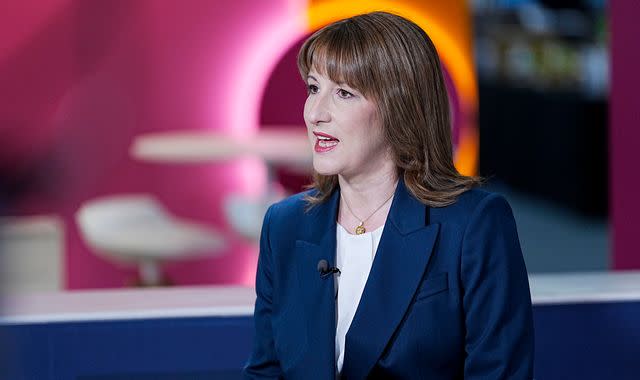By Eniola Amadu
Chancellor Rachel Reeves has signalled that more tax hikes could be on the horizon as she works to stabilise the UK’s public finances ahead of next month’s budget.
Speaking to broadcasters in Washington, DC, before the International Monetary Fund (IMF) annual meeting, Reeves said she was considering “further measures on tax” and spending, emphasising that she would “continue to prioritise economic and fiscal stability.”
The remarks come amid expectations that the 26 November budget will include new tax rises following gloomy economic forecasts and a series of reversals on welfare policy.
READ ALSO: Labour MPs urge Rachel Reeves to scrap council tax amid budget pressures
Reeves previously announced £40bn worth of annual tax increases at her first Budget last November, including hikes to employer payroll taxes.
At the time, she said such measures would not be repeated — but the changing economic landscape may force her hand.
Higher borrowing costs and downgraded productivity forecasts have created what analysts describe as a £20bn shortfall if Reeves is to meet her “non-negotiable” fiscal rules.
These rules require government debt to fall as a share of national income by 2029–30 and for day-to-day spending to be fully funded by tax revenue rather than borrowing.
Asked directly if tax increases were inevitable, Reeves said: “As we get the forecast, and as we develop our plans, of course we are looking at further measures on tax and spending, to make sure that the public finances always add up.”
She added that “austerity policies and former Prime Minister Liz Truss’s mini-budget” had severely damaged the economy, while Brexit had inflicted “severe and long-lasting” harm.
Although Reeves did not specify which taxes might rise, reports suggest she may target property taxes and gambling firms.
She has not ruled out continuing the freeze on income tax thresholds beyond 2028, potentially drawing more workers into higher tax bands as wages increase.
At Labour’s conference last month, Reeves reiterated her pledge to keep “taxes, inflation and interest rates as low as possible.”
However, her pre-election promise not to raise key levies — including income tax, VAT, and corporation tax — limits her options.
READ ALSO: Kemi promises to scrap stamp duty tax, help millions to buy property
Meanwhile, the IMF has forecast that the UK will be the second-fastest-growing major economy this year but warned it will also face the highest inflation rate among G7 nations.
Shadow chancellor Sir Mel Stride criticised Reeves, saying, “Under Rachel Reeves we have seen inflation double, debt balloon, borrowing costs at a 27-year high, and taxes up — with more pain on the way in the autumn.”



